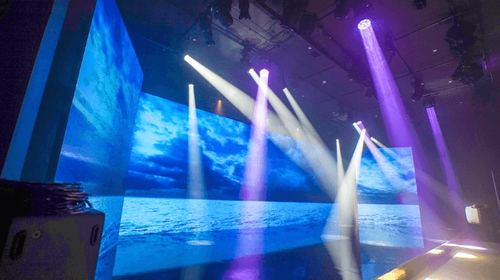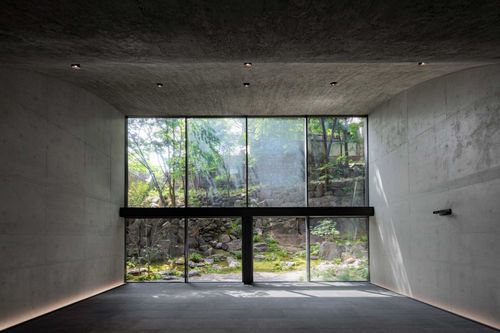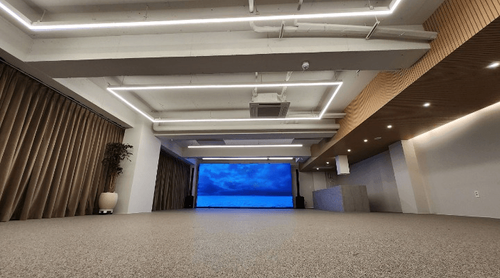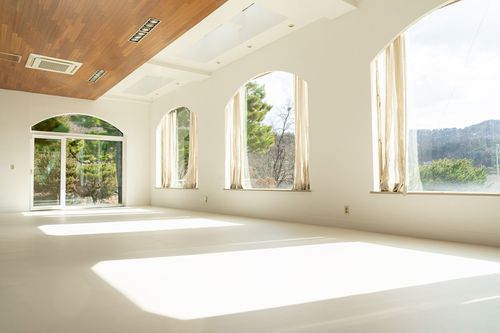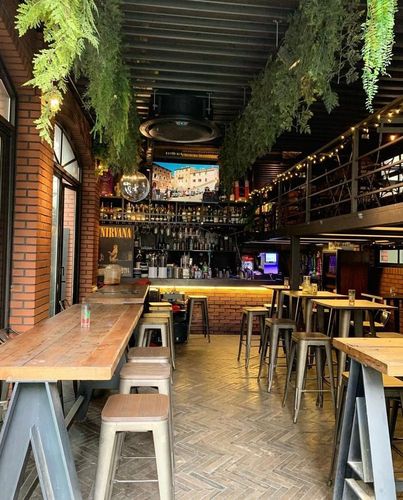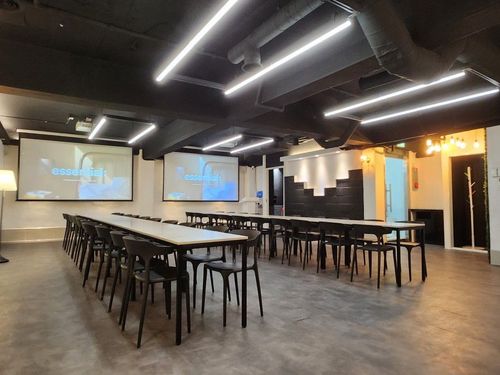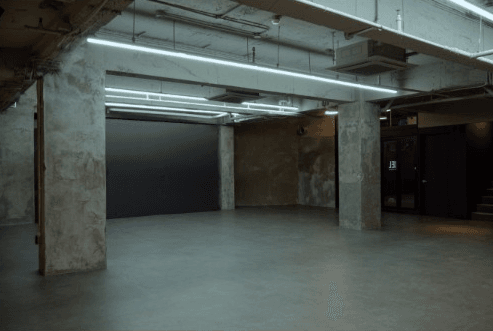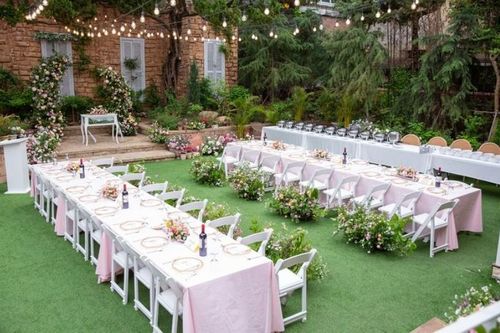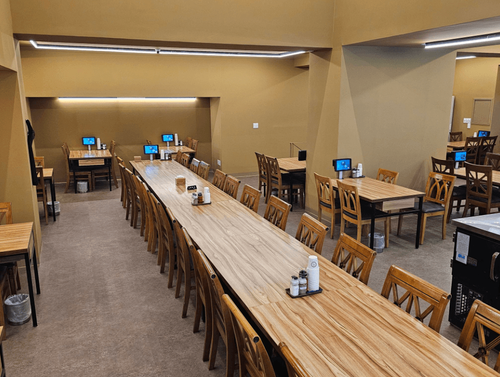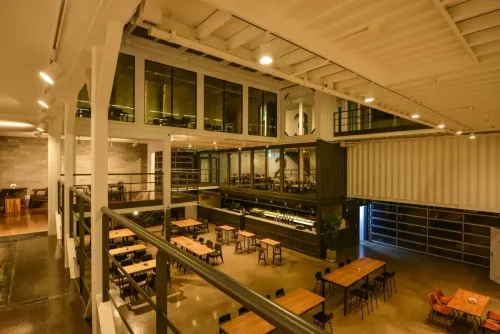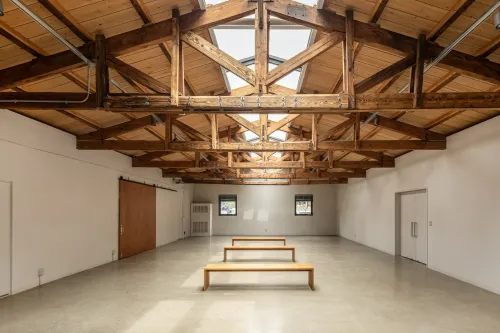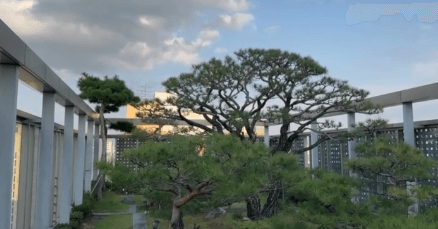Hire Corporate Event Venues in Seoul
Popular Corporate Event Venues in Seoul
Find unique corporate event spaces in Seoul
See AllContemporary Chic Venue With Black Interior and Floor-to-Ceiling Windows for Intimate Events
Looking for a venue that blends sleek modernity with stunning river views? Look no further! This Bauhaus-inspired contemporary space in Seoul, featuring chic black interiors and floor-to-ceiling windows with a panoramic view of the Han River, is perfect for... Show More
Futuristic Event Hall with 600-Inch LED Wall for Elite Gatherings
Discover an exclusive event hall in Gangnam, where cutting-edge LED walls create an ideal backdrop for corporate galas and conferences. Situated in vibrant Gangnam District, this venue hall offers unparalleled convenience. Step into the future of events at... Show More
Industrial Chic Venue With Raw Concrete Steel Beams Perfect for Dinners and Pop-Up Events
Looking for a bold, industrial venue for your next event in Seoul? This hidden gem offers a unique atmosphere perfect for parties, anniversaries, launching events, and private dinners. The venue features raw concrete walls, polished floors, and large windows... Show More
Elegant Modern Hall With Large LED Wall for Dynamic Events and Gatherings
Looking for the perfect venue in Seoul for your next event? Look no further! This modern and sophisticated hall, with its off-white and soft brown interior, offers an elegant and versatile setting for various lectures, briefings, conferences, small group... Show More
Garden Venue With Scenic Windows and Elegant Interiors
Welcome to a venue that’s as dynamic as your events! This unique event venue in Seoul offers a natural, modern vibe with a spacious private outdoor garden and an interior that’s drenched in natural light. Perfect for anything from corporate mixers to trendy... Show More
Modern Venue With Blend of Elegance and History for Corporate Events With Stunning Palace Views
Located amidst Seoul's rich tapestry of history and modernity, discover a venue where classical Korean charm meets contemporary sophistication. Imagine hosting your next event in a space adorned with brown and off-white hues, subtly infused with echoes of... Show More
Chic Industrial Cafe With an Outdoor Terrace for Happy Hour Events
This venue seamlessly combines industrial chic with modern urban design, offering a unique and vibrant atmosphere for any type of event. The open-air terrace is the highlight, bathed in bold red neon lighting that creates an electric yet inviting ambience.... Show More
Classy Minimalistic Venue With Chic Interiors
Step into this amazing venue where versatility meets chic sophistication. Situated in Seoul's vibrant landscape, this unique space is perfect for hosting a diverse range of events, from swanky cocktail parties to dynamic workshops and everything in between.... Show More
Raw and Multipurpose LED Studio With Industrial Design for Versatile Events
Looking for a dynamic spot to host your next big event? Say hello to this LED Studio, the coolest multipurpose cultural space in Seoul! This multipurpose cultural space isn't just a venue—it's an immersive experience waiting to be discovered.Boasting cutting-e... Show More
Chic Scandinavian Venue With Han River Views for Versatile Events
Ever thought about hosting your next event with a stunning Han River view? Nestled in the heart of Seoul, this venue boasts a sleek white Scandinavian interior that radiates modern elegance. The minimalist design, characterized by clean lines and natural... Show More
Elegant Modern Venue With Chic Interiors and Outdoor Patio for Versatile Events
Are you searching for the perfect blend of nature and sophistication for your next event in Seoul? Look no further! In the heart of Seoul, this sophisticated venue invites you to experience the most natural and beautiful moments, crafted with our unique touch... Show More
Versatile Event Space With Vibrant Interiors for Corporate Events
Step into a venue where vibrant hues and lush greenery converge in the heart of Seoul's bustling scene. This unique venue boasts an exquisite blend of bright, bold colors and architectural elements adorned with green leaves, creating an atmosphere that... Show More
Chic Venue With Tropical Modern Vibes
Step into a tropical haven with a modern twist at this stunning Seoul venue. Perfect for everything from high-energy galas to intimate dinners, its off-white, breezy ambiance will transport your guests to a chic retreat. The venue’s spacious layout features... Show More
Neon Arcade Hall for Team Celebrations and Launches
This neon arcade hall delivers a high-energy setting for parties, brand activations, and team celebrations. Electric lighting, game consoles, and futuristic visuals set the tone for immersive, play-driven experiences.The open-plan layout includes modular café... Show More
Warm Wooden Interiors in Myeongdong Perfect for Events and Gatherings
Planning an unforgettable event in Seoul? Look no further than Myeongdong's largest multipurpose space rental, where elegance meets versatility. This spacious venue, adorned with warm brown interiors and complemented by woody chairs and tables, creates a... Show More
Luxurious Event Venue With Antique Lounge Mood and Mountain Views
Looking for a remarkable spot for your next corporate event in Seoul? This expansive space venue in Jungnang-gu ticks all the boxes: abundant natural light, a private garden, and breathtaking mountain views. The venue exudes a classic, antique lounge atmospher... Show More
Industrial Mezzanine With Glass Walls for Brand Launches
The upper level of this container complex in Seoul hosts exhibitions, interactive experiences, meetings, staff areas, and large-scale events. Glass panels connect it to the first floor. At the same time, the elevated layout creates dynamic visual links... Show More
Industrial Event Hall With Skylights for Pop-Ups and Exhibitions
Multipurpose event hall in Seoul, ideal for creative workshops, brand activations, exhibitions, and production shoots. Spanning 198 m², the open-plan layout features exposed timber trusses, polished concrete floors, and skylights for natural light. The gabled... Show More
Stylish and Versatile Event Space Featuring Modern Amenities
Welcome to your premier venue in Seoul for all your event needs! Whether you're planning a chic cocktail soirée, a productive seminar, or an intimate workshop, this versatile space is your go-to destination. It boasts top-notch amenities and an atmosphere... Show More
Sky Garden Rooftop Atrium With Bonsai Clusters and Skyline Views for Wellness Events
Elevated on the 14th floor, this rooftop venue fuses the serenity of a bonsai garden with rustic outdoor charm—an unexpected urban oasis perched between two minimalist light-grey buildings. Rooted in Japanese Zen landscaping and urban contemporary architecture... Show More
A Guide to Hosting Corporate Events in Seoul
Welcome to Seoul, a city bursting with energy and creativity. South Korea's capital is a cosmopolitan melting pot of culture, technology, and delicious food. From the bustling streets of Hongdae to the peaceful banks of the Han River, Seoul sets the stage for unforgettable events.
Planning an event in Seoul is an adventure in itself. As one of Asia's must-visit destinations, the city is brimming with unique venues and a nightlife that keeps the fun going until dawn. Whether you're organising team-building activities in Seoul, a lively outdoor festival, or a sophisticated indoor gathering, Seoul has everything you need to make your event a success.
What's more, Seoul's distinct seasons add a special flair to any event. You could host a summer party against the backdrop of the city's breathtaking views or a cosy winter event in a chic venue. Each season offers its own magic, making every gathering feel fresh and engaging.
The city's landmarks, such as the stunning Dongdaemun Design Plaza and the historic Gyeongbokgung Palace, provide fantastic settings for events that leave a lasting impression. These locations not only enhance the visual appeal but also offer opportunities for cultural engagement that attendees will remember long after the event is over.
Bonus reading: If you’re interested in the cultural side of South Korea’s capital, check out the best museums in Seoul.
Seoul's strategic location as an international travel hub also ensures that attendees from all corners of the globe can easily reach the city. With an efficient public transport system, including subways and buses, navigating the city is a breeze, allowing attendees to easily explore its rich offerings.
So, let's explore the exciting world of corporate events in Seoul. From top venues to unique experiences, we have the insight you need to ensure your event is successful and truly remarkable.
1) The Types of Event Spaces in Seoul
We know you’re probably thinking about what kind of event venues you can find in Seoul, and we’re happy to answer that for you. The truth is that Seoul is a bustling city with a lot of variety in everything it offers, including the event venues here. Here are some of the types of event spaces in Seoul.
- Rooftop venues: Nothing says 'wow' like a rooftop venue, and with Seoul's stunning skyline, this is an obvious choice! Host your corporate event on one of the city's many rooftop venues to take the classy factor to the next level.
- Modern conference centres: Modern conference centres with state-of-the-art technology and spacious auditoriums are ideal for serious business. They integrate functionality with style, making them perfect for seminars, workshops and corporate meetings.
- Unique-themed venues: If you're looking for something really out of the ordinary, themed venues can add a playful twist to your event. These venues add personality to your event and leave a lasting impression on your attendees.
- Historic event locations: Step back in time at Seoul's charming historic venues. With their intricate architecture and rich history, these venues add a touch of elegance and sophistication to any event.
- Outdoor spaces: When the weather is right, outdoor venues are the way to go! Parks and gardens offer a breath of fresh air and a relaxed atmosphere, perfect for picnics, team-building activities or casual meetings. And who doesn't love a bit of greenery in the middle of a bustling city?
2) Discover Seoul’s Best Neighbourhoods to Host a Corporate Event
Seoul is a city with many hidden corners and eclectic neighbourhoods. Whether you’re after a glitzy, modern ambience for your event or you’d like to explore the city’s quieter spots — there’s a neighbourhood for that!
If we had to pick, here are our top neighbourhoods in Seoul to host a corporate event.
- Gangnam: Yes, THE Gangnam of the popular Gangnam Style song, this area is the epitome of sleek sophistication. Known for its modern skyscrapers and chic venues, the neighbourhood has an energetic vibe that is perfect for networking events or high-profile meetings. With its trendy restaurants and stylish cafes, you can seamlessly blend work and play.
- Hongdae: This is where the creative magic happens! This youthful neighbourhood is known for its artistic flair and vibrant atmosphere. Hosting an event here means street performances and art installations will inspire your attendees. Plus, the quirky cafes and vibrant nightlife nearby make for a fun post-event experience.
- Itaewon: A melting pot of cultures, Itaewon is an ideal location for international meetings. With a diverse range of venues, from swanky hotels to cosy event spaces, this area can cater to any corporate atmosphere. After your meeting, take a stroll through the eclectic streets and enjoy delicious cuisine from around the world — talk about a palate-pleasing way to network!
- Jongno: A taste of history mixed with modern charm, Jongno is home to beautiful traditional palaces and contemporary venues. Hosting your event here offers a unique experience where the elegance of Seoul's past meets the bustle of the present. Can you imagine your guests mingling in a chic room overlooking the majestic Gyeongbokgung Palace? Talk about iconic!
- Yeouido: Also known as Seoul's financial centre, Yeouido is a prime choice for corporate events. With its impressive skyline and waterfront parks, this area provides a picturesque setting for conferences and seminars. Yeouido also boasts several high-tech venues equipped with the latest amenities to ensure your event runs smoothly.
3) Planning a Budget for an Event in Seoul
Finding the right venue in Seoul can feel like a bit of a journey through a world of options, with each venue offering something different to suit your event needs. To help you out, here's a quick overview of venue costs in the city.
- Affordable venues: These are perfect for keeping your budget in check while still delivering a memorable experience. Typically, these venues cover the basics and range from €20 to €50 per hour.
- Mid-range venues: If you're looking to elevate your event, Seoul offers stylish options such as modern conference rooms, art-filled galleries or trendy co-working spaces. Costs here tend to be between €50 and €150 per hour.
- High-end venues: For a more luxurious experience, Seoul's premium venues include grand hotel ballrooms, chic rooftop terraces with skyline views, and expansive convention centres. Prices for these exclusive venues typically range from €150 to €500 or more per hour, depending on the level of luxury and service required.
Additional costs to consider:
- Audio-visual equipment
- Catering
- Event planning services
- Accommodation
- Transportation
- Marketing and promotion
- Translation services
- Insurance
- Permits and licences
- Speaker fees
- Decoration
4) Top Caterers for Corporate Events in Seoul
Everyone looks forward to the food at a corporate event, and when the city’s food scene is as varied and delicious as Seoul's, there’s even more reason to get excited about corporate catering. Here are our favourite corporate event caterers in Seoul.
- Mingles: For a sophisticated dining experience, Mingles is an excellent choice. Chef Mingoo Kang creates modern Korean dishes using seasonal ingredients, which are ideal for formal gatherings or intimate events. Their unique flavours will impress event attendees and add a touch of elegance.
- Conrad Seoul: This popular five-star event caterer offers customisable menus that cater to a variety of dietary preferences without sacrificing on taste. Options such as bulgogi sliders and kimchi risotto showcase modern Korean flavours and ensure that everyone at your event enjoys a delicious culinary experience.
- Baekje Samgyetang: For authentic Korean cuisine, look no further than Baekje Samgyetang. Their famous ginseng chicken soup, or samgyetang, is comforting and satisfying. Combine it with crispy pajeon (scallion pancakes) and a variety of banchan (side dishes) for a complete Korean meal that will delight event attendees.
- Veg Green: If you're looking for plant-based options, Veg Green specialises in fresh and tasty vegetarian and vegan dishes. Located in Gangnam and offering delivery all over Seoul, their creative cuisine caters to health-conscious diners and ensures all guests have something delicious to enjoy.
- France Catering: Give your event an international touch with France Catering. True to its name, this event caterer brings a touch of sophistication by blending French culinary techniques with Korean flavours. Their refined dishes are perfect for corporate events or upscale gatherings, promising a dining experience that will impress everyone at your table.
5) Turn Up The Fun With These After-Work Ideas for a Corporate Party in Seoul
What's the best way to take your corporate event in Seoul to the next level? After-work adventures, of course! Luckily, Seoul's after-work scene is a vibrant mix of culture, relaxation, and excitement that will entertain your event attendees long after the clock strikes five. Here are some fun ideas to kick off your evenings in this dynamic city!
- Noryangjin Fish Market: Forget the usual dinner plans! Head to Noryangjin for a seafood feast. Pick your fresh catch from the market and watch the chefs prepare it before your very eyes. Nothing says "I made it through the workday" like slurping down sashimi with a side of laughter!
- Han River picnics: Grab your favourite snacks and a cosy blanket and head to the Han River. Whether you prefer a quiet sunset view or a lively gathering with friends, the riverside parks are perfect for relaxing. Bring a Frisbee or board game for extra fun!
- Karaoke nights: Unleash your inner pop star at a noraebang (karaoke room). Gather a group of colleagues and belt out your favourite hits. Who cares if you hit all the right notes? It's all about having fun and laughing (and maybe a little friendly competition!).
- Craft beer tour: Immerse yourself in Seoul's craft beer scene! Explore local breweries and sample some unique brews. Many offer tasting flights, so you can sample a variety while learning about the brewing process. Here's to discovering your new favourite pint!
- Street food adventure: Take to the streets for a culinary journey through Seoul's night markets. From spicy tteokbokki to sweet hotteok, the possibilities are endless. Taste your way through the bustling stalls, and don't forget to snap some pictures for the 'gram!
Wrapping Up
And there you have it — a complete guide to corporate events in Seoul! Hopefully, you'll leave with all the inspiration you need to make your event stand out from the crowd. Ready to start planning? Let's go!
FAQs about Seoul Corporate Event Venues
Spring and autumn are ideal seasons for corporate events in Seoul. The city comes alive in spring with blooming cherry blossoms and mild temperatures, offering beautiful outdoor settings and vibrant cityscapes. With its crisp air and stunning autumn foliage, autumn provides the perfect backdrop for meetings. Both seasons offer pleasant weather, making it easy to explore the city, hold outdoor activities or enjoy scenic venues without the extremes of summer heat or winter cold.
If your corporate event in Seoul involves attendees from different countries, an event translation service can be a valuable addition. While many professionals in Seoul speak English, providing translation services ensures that language barriers don't hinder communication, especially during presentations or panel discussions. It can enhance the experience for non-Korean speakers and ensure that everyone stays engaged and informed. Whether it's simultaneous interpretation or document translation, it helps create a more inclusive environment for international attendees.
Yes, there are several direct flights from major European cities to Seoul. Airlines such as Korean Air, Asiana Airlines and various European carriers offer non-stop flights from cities such as London, Paris, Frankfurt and Amsterdam to Incheon International Airport, which is the main gateway to Seoul. Flight times typically range from 10 to 12 hours, making it convenient for business travellers heading to Seoul for corporate events or meetings.
Korean business culture differs from European business culture in several important ways, particularly in terms of hierarchy, formality, and communication styles.
In Korea, respect for hierarchy is essential and seniority often dictates decisions and interactions. Meetings tend to be more formal, with a strong emphasis on showing respect through greetings such as bowing and exchanging business cards, which are handled with great care.
Indirect communication is common, where politeness may mask disagreements in order to maintain harmony, whereas European business cultures, particularly in Western Europe, often favour more direct and transparent communication.
Building personal relationships and trust is also highly valued in Korean businesses, where long-term partnerships are prioritised over quick deals. Understanding these cultural nuances can lead to smoother business interactions when working between the two regions.
